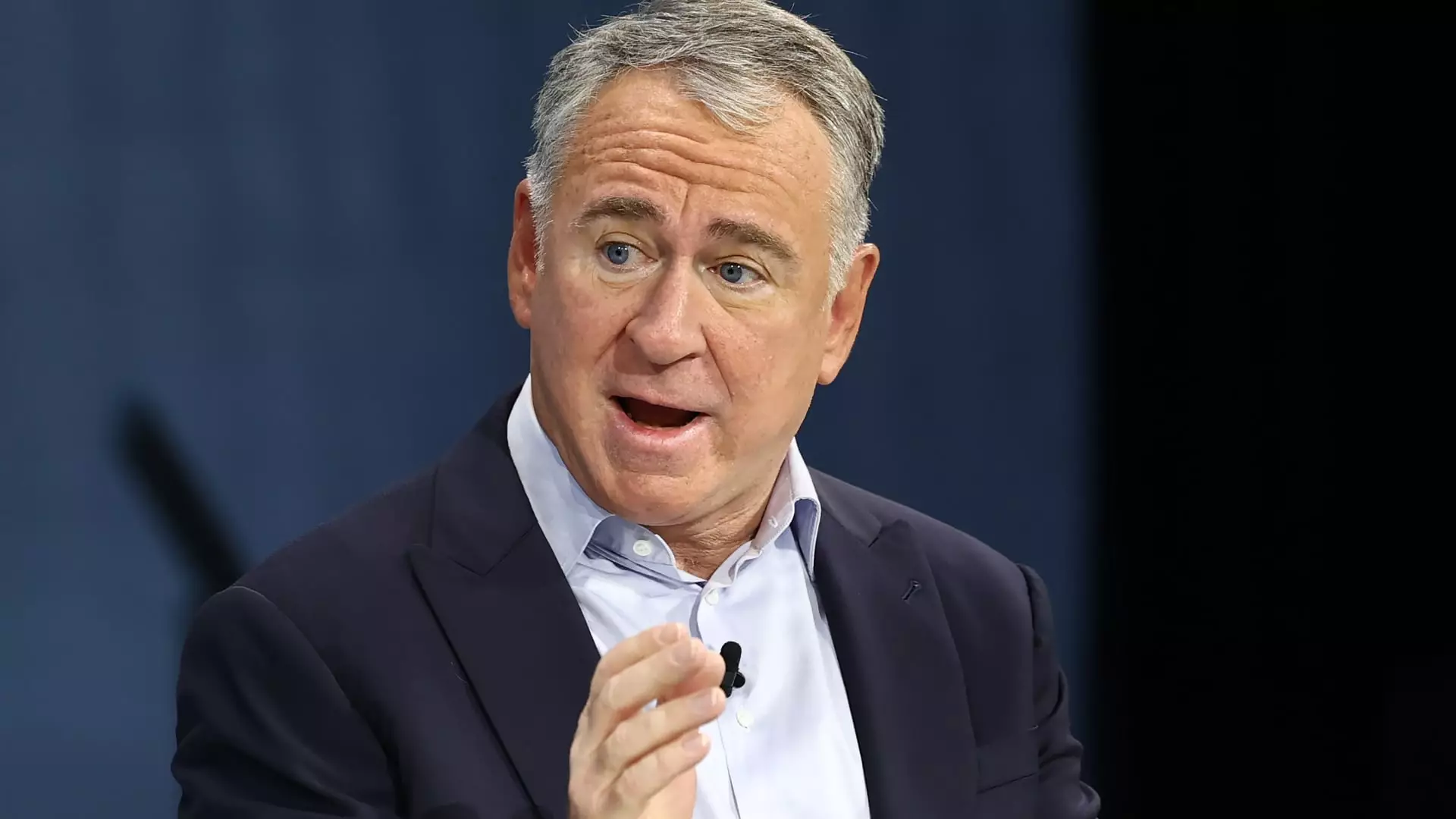In an incisive commentary on the current U.S. trade climate, Citadel’s CEO, Ken Griffin, has raised significant concerns about the fallout from President Donald Trump’s aggressive trade stance. Speaking at the UBS Financial Services Conference in Key Biscayne, Florida, Griffin described the president’s “bombastic rhetoric” as detrimental to the foundational trust necessary for international trade. He argued that such an approach not only alienates potential trading partners but undermines American corporations’ confidence in their country’s ability to uphold commitments.
Griffin’s remarks highlight a crucial point: the psychological impact of a government’s trade actions can reverberate far beyond immediate economic metrics. His assertion that “the damage has already been done” serves as a chilling reminder that the perception of instability can deter investment at a fundamental level.
Trump’s recent decision to impose tariffs on steel and aluminum imports — a move that follows the implementation of a 10% duty on all Chinese goods — has drawn sharp criticism from various sectors. Griffin pointedly remarked on the difficulties faced by multinational corporations in planning for the long-term, particularly when considering substantial capital investments. The uncertainty introduced by the administration’s tariff policies disrupts established norms of trade, which is particularly unsettling for organizations that often operate across multiple jurisdictions.
Investors generally seek predictability when committing resources, and Griffin’s insights underscore the potential long-term setbacks that such aggressive tariffs could produce. The immediate spike in costs for production materials can lead to increased prices for consumers and reduced competitive advantages for American products in the global market.
Griffin’s observations extend beyond mere financial implications; they touch on the broader context of economic policy and governance. He warned of the emerging risks of crony capitalism, a scenario where private interests gain undue influence over public policy, often to the detriment of fair competition and innovation. Such an environment can breed inefficiency and corruption, stalling progress in favor of those who can navigate the labyrinth of regulatory favor.
As tariffs continue to reshape the landscape of international trade, stakeholders across the spectrum — from CEOs to policymakers — must grapple with the ramifications of this combative approach. Griffin’s perspective may resonate particularly deeply given his previous support for Trump, as it reflects a growing unease among business leaders who once aligned themselves with the administration’s economic agenda.
The crossroads at which the U.S. finds itself presents both challenges and opportunities. While the immediate impacts of tariffs are clear, the long-term effects on trust, investment, and competitive standing are less certain. Leaders like Ken Griffin are sounding alarms for a reason; the business community must advocate for a more stable and collaborative approach to trade. As America navigates its path in the global economy, restoring trust and fostering positive relationships with trading partners may be the key to maintaining its economic vitality.

